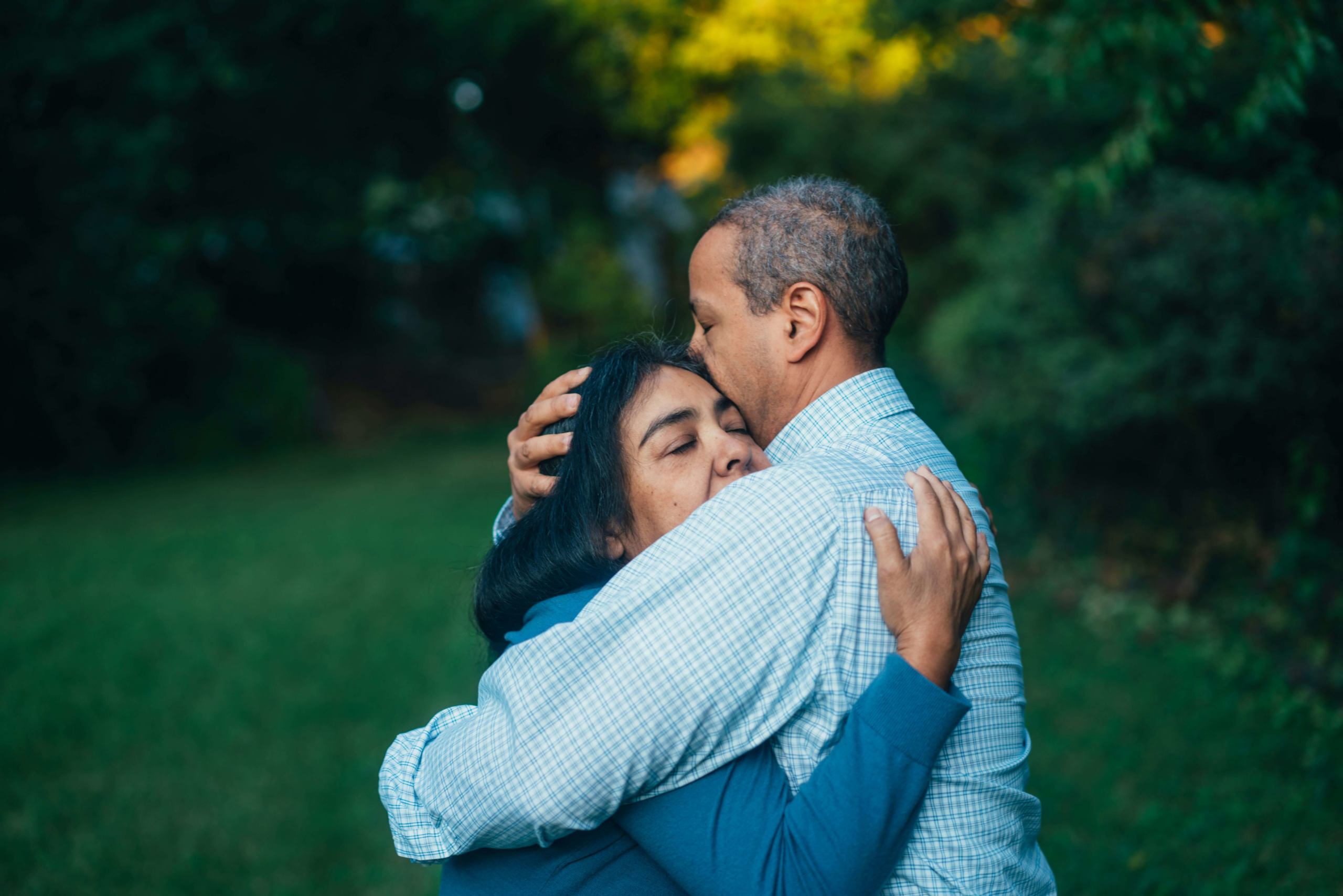Relational trauma is an umbrella term for any re-occurring trauma that happens within a relationship. Most trauma is relational trauma. It can stem from a one-on-one relationship, relationships within families, intimate partnerships, friendships, or our relationship with the world we live in. This blog post focuses on the broader term relational trauma, its impact on the core of who you are, and how you CAN heal.
Growth is a part of being human. We are in a sense always becoming and always emerging into that unique person we are meant to be. A major part of becoming who we are is shaped by our relationships with others, from birth and throughout life. Instinctively we know this and studies in psychology over time show this to be true. The quality of our relationships impacts our physical and mental health in the short and long term. We now have the field of Neuroscience that confirms this notion. We do not become who we are in a vacuum; we become who we are through our connections, experiences, and relationships with others. So, it makes sense that wounding, or trauma, that happens within a relationship impacts our growing into who we are meant to be. Let’s dig a little deeper.
Relational Trauma’s Impact
Relational trauma happens within the context of a relationship. It makes the impact on our sense of self and the process of figuring out who we are difficult. Whether relational trauma happens in childhood or later in life it impacts one’s internal sense of safety. While interrupting the capacity to grow and develop into one’s best self. We are meant to thrive; we are meant to journey towards wholeness. Carl Jung says this in a captivating way, “Our greatest task in life is to become who we are.” He goes on to say, “The strongest most ineluctable urge in every being is namely the urge to realize itself.”
Relational trauma attacks the very core of our being and interrupts this task, this task of growth, leaving one stuck and devoid of tools to navigate an authentic life of meaning. Many clients who suffer this trauma describe a feeling of brokenness and often feel something is “wrong” with them. When we view relational trauma as attacking the very core of our being we can understand why one might feel fractured or broken.
At birth, we literally need others to survive and throughout life we have an enduring need to connect with others to feel stable, alive, and healthy. When relational trauma, at any stage of life, disrupts this biological need for connection our system adapts by protecting and defending us from harm. This is the good news. Our brain and autonomic nervous system are set up to perceive threats and to survive. While these adaptive defenses work to keep us alive they also prevent us from developing the internal sense of safety we need to evolve and move about the world with ease. In other words, trauma triggers our primal built-in survival system and at the same time halts growth.
Unresolved Relational Trauma is Detrimental
Healing is possible. It is possible to reconfigure our brain and autonomic nervous system from a place of fear (survival) towards a place of safety and connection (flourishing). Our system is not hard-wired. Our system is a product of evolution; it is adaptable and has the ability to shift and evolve throughout life. What this means is that we can undo the effects of relational trauma. We can right our system if you will. We are not only built to survive, we are also built to thrive! This is the neuroscience piece that gives us the knowledge and confidence that our physiological system is not only set up to defend and survive but when out of harm and in a place of safety it can ground and settle so we can, once again, move towards the higher state of thriving.
You may ask, what is it our system is defending? What is it in us that has this ability to grow and thrive? I like to call it the soul, the heart and core of who we are, the essence of our being, our true self. Our amazing and intuitive system defends and preserves the core of who we are while we do what we have to do to survive. Survival mode is necessary when in harm but being stuck in this state is detrimental. The insidious and repeated nature of relational trauma leads to a chronic state of survival mode and has a crushing effect on the soul, the part of us meant to grow, evolve, and flourish. Thankfully, a reawakening of the soul is possible. Trauma-informed therapy can help you dismantle the defenses and return to a life full of meaning.
The Experience of Relational Trauma
I like the way Gretchen Schmelzer, trauma expert, refers to the three separate aspects of the experience of relational trauma. The first aspect is the actual trauma that happened – the repeated exposure to threat and harm. The second aspect is what our brain and nervous system does to endure the trauma – the protective defense system we build to be able to function. Third is what she calls what didn’t happen – the natural growth and development that helps you learn how to navigate relationships and the world with hope and confidence. She says, “Relational trauma is about both what happened and what didn’t happen.” The what didn’t happen, natural developmental growth, is key and central to healing.
It is never too late to address the traumas that did happen. We can work with the defenses your wise system has in place for survival and help you move, once again, to the natural state of your being, which is a state of growth and development.
Neuroscience Explains Why Psychotherapy Works
Neuroscience cannot explain the mystery of the soul. But it goes a long way to understanding how relational trauma leaves one in a constant state of survival. Jung says, “The instinct for wholeness and unity is the most important of the fundamental instincts humans possess.” I understand this to mean our greatest instinct is to thrive. Psychotherapy seeks to address the brokenness that results from relational trauma by offering a healthy psychotherapeutic attachment relationship. This process is gradual but it is life-changing and transformative.
Psychotherapy, particularly depth work that combines ancient wisdom, psychology, and neuroscience, is a path to healing the wounds of relational trauma. This approach is attuned to the body, the mind, and the soul. In a culture where making it on one’s own is a sign of great success it can be challenging to embrace the idea that our health relies on this core need for healthy connection. Yet, studies show that the kind of wounding that happens in a relationship has the capacity to heal in a relationship. Relationships matter; cultivating safe and healthy relationships is key to healing from relational trauma.
A True Healing of the Soul
One last note of interest, food for thought, or food for the soul, if you will. The origin of the term psychotherapy comes from the Ancient Greek words psyche meaning breath, spirit, or soul, and therapeia meaning healing or medical treatment. The term psychotherapy means the healing of the spirit/soul. I find the ancient and root meaning of the term psychotherapy fascinating in light of what we know today. Today, we have science that is congruent with the true meaning of psychotherapy. To me, this is profound. It is what keeps me growing and learning.
This intersection between ancient wisdom traditions, depth psychology, and modern neuroscience continues to be the seed of my curiosity and the foundation of my research. The plight of the human condition is a passion that drives my interest in helping others heal from relational trauma. I find that an approach that encompasses body-based therapies from ancient wisdom traditions, knowledge from neuroscience, and a deep dive into the soul aligns with the true meaning of the word psychotherapy. The process that unfolds in the therapeutic/client relationship – is a true healing of the soul.
Begin Trauma Therapy for Relational Trauma in Texas!
Is relational trauma impacting your well-being and relationships? You don’t have to carry the weight of that trauma alone. Lysle Shaw Psychotherapy can help you transform your life. Begin your journey to healing your relational trauma with me as your trauma therapist. Follow the steps below to get started:
- Reach out to schedule a consultation
- Overcome your trauma
Other Psychotherapy Services Offered at Lysle Shaw Psychotherapy in Austin, Houston, and throughout Texas
I am committed to providing a range of therapeutic services to meet your unique needs. Other psychotherapy services include online psychotherapy, Jungian dreamwork, walk and talk therapy, and individual therapy for relationship issues. Contact me today to take your first steps to grow from your relational trauma.

Recent Posts
Can You Heal From Relational Trauma? Part 1
Absolutely, you can heal from relational trauma! In this series of blog posts, I'm excited to introduce you to Gretchen Schmelzer’s Trail Guide to the 5-Phase Cycle of Healing Repeated Trauma. Gretchen, a psychologist, trauma [...]
Relationships Matter! Insights from an Online Relational Therapist in Houston, TX
Spring is upon us and here in Houston, Texas, it's likely to phase into summer heat soon. We happily got a cool snap this week and I found myself able to do my runs under [...]
Can You Recover from Religious and Spiritual Trauma? Exploring With Online Trauma Therapy in Austin, TX
A Brief Look at Trauma Before we look at religious and spiritual trauma let’s look at a brief definition of trauma. Trauma is any event that overwhelms a person’s ability to cope with it. This [...]







